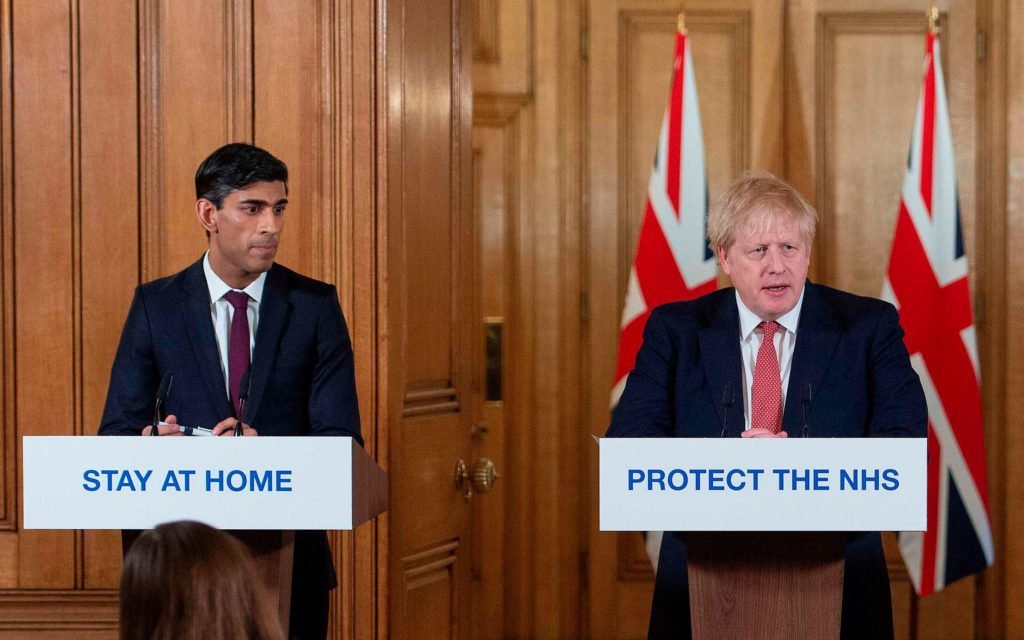After posting a video explaining how inevitable the second wave was in the UK, Boris Johnson seems to find himself in a quite uncomfortable position. Here’s why.
On the 23rd of February, an article from the British newspaper The Times explained how the negotiation team received the order to find a way not to deal with Ireland and Northern Ireland. Both entities have had a long history with the UK.
In 1801, the island of Ireland became part of the United Kingdom, along with Scotland and Wales. The increasing anti-British feeling provoked the 1916 revolt and then the 1919 independence war, before dividing the Island between the Republic of Ireland and Ulster (Northern Ireland) in 1921. In the 60’s the revolt started again, triggering a civil war, known as “the Troubles” which made “Bloody Sunday” a worldwide event, one of the most violent in the Irish history.
The long-lasting conflict ended with the Good Friday Agreements in 1998, signed by Tony Blair and Bertien Ahern, the Irish prime minister. These agreements enabled both Irelands no to have a physical border, symbol of the pacification of the conflict. However, with Brexit, the threat to re-implement a physical border is real. On February 1st, the UK’s prime minister signed an agreement with the EU concerning the border. This latter stipulated that Northern Ireland could continue to use European laws and rules unless the UK and the EU meet the ends for a Brexit final agreement. But the UK’s September political agenda changed everything: the Perfidious Albion started a trade law project called the Internal Market Bill. Johnson wants a backstop and is determined to have it with the large Conservative majority at the parliament. This backstop concerns the maintenance of free circulation of the goods and services with Northern Ireland if no final agreement is reached between London and Brussels. With those new laws and agreements, the UK is set to protect its trading power and advantages with Northern Ireland without having to threaten a new physical border. It means transferring as soon as possible the EU competencies to the UK straight away. But here’s another problem: International Law. With transferring trading and customs competencies to the British administrations, it breaks the agreement signed in 2019 saying that Northern Ireland will continue to apply the European Reglementation of the EU common market, symbol of liberalism. Johnson’s administration is then trying to protect its interests because of its long-term worries of seeing Ulster breaking up with London and getting too close to its neighbour, the Republic of Ireland. This is what political protectionism is.

Apart from Brexit, Johnson has other fish to fry.
After merging the Foreign Office and the Department For International Development, the so-called populist has been doing a lot for his country. September has however been successful for the new independent trade power. Although the UK left the EU, it hasn’t prevented the country from starting new relations with other nations. Indeed, they signed a record deal with Japan this month, increasing trade by an estimated 19.6 Billion US$. This brand-new agreement gives competitive advantage to export to the Nippon island and would increase British workers’ wages by £800 million in the long term. International Trade Secretary Liz Truss proudly announced the deal as the first major post-Brexit trade deal.
Concerning Public Policy, Johnson’s administration has been focusing on re-boosting the economy in consequence of the COVID19 pandemic. The young Chancellor of the Exchequer Rishi Sunak presented his “Plan for Jobs 2020” this July. First, a £1,000 job retention bonus will be distributed to companies for each furloughed worker.
£2 billion will be invested for a youth employment plan, concerning the 16-24, assuring a minimum-wage for 25 hours-week contracts, and £2,000 will be given for each new apprentice hired under the age of 25. £1.6 billion will also be injected in the economy for training people looking for a new job. The Bank of England will be printing money, a lot of money.
Boris Johnson receives many critics, yes. Populist, unclear, nationalist, confused, stubborn…But overall, he’s taking initiatives, seeking new partnerships, privileging bilateral relations, expanding the country’s diplomatic and trading power. In matters of public policy, he’s also doing a lot. Investing, protecting its economy and its people, which doesn’t harm anybody. Now, the last thing that the prime minister should do is to seek respect and affinities. Be loved!







The UK-Japan trade deal is a complete flop that has more face than substance. Figures suggest that the economic growth derived from the trade deal to the UK will be 0.05% GDP boost while Brexit in a best-case scenario will push for a long-term 5% reduction in GDP. The UK-Japan trade deal essentially replicates the currently existing EU-Japan deal and demonstrates how the fantasy of free-trade deals across the world for the UK will always be overshadowed by the much larger and significant EU trade deals.
Boris Johnson isn’t taking any initiative, has cut the FCDO budget to smithereens, with the Foreign Office not having the capability to defend the “Britain is Great” campaign. Boris Johnson is a farce, and the only reason he remains in power is that not only is he the best of the worst for the Tory party, but he’s picked such a useless cabinet (bar potentially Sunak) that any 1922 member or Tory MP/Voter would be scared of the power vacuum that would be created were Johnson forced down.